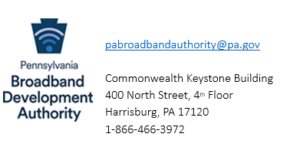Senate Republican leaders have asked the Trump administration to rescind an 1115 Medicaid waiver that would expand social services for vulnerable populations, including low-income families, chronically homeless individuals, and people being released from incarceration. Republicans believe the added services in the waivers — approved last year under the Biden administration, but not yet implemented — will balloon Pennsylvania’s Medicaid costs. In response, Gov. Josh Shapiro’s administration has scaled back implementation plans.
Government Funding Continues for Six Months
US Senators worked down to the wire to avoid a midnight funding lapse in Washington DC last week. Despite widespread Democratic criticism of the House’s six month “Continuing Resolution” (CR), a number of Democrats joined their Republican colleagues and voted to pass the legislation. The CR provides both mandatory and discretionary funding at the FY24 levels for Section 330, the National Health Service Corps, and Teaching Health Centers, through Sept. 30, 2025.
 The PBDA is hosting two webinars in anticipation of opening the second round of the Digital Connectivity Technology Program (DCTP). Each webinar will provide an overview of the program, review FAQs, and will implement breakout sessions focusing on libraries, non-profits, workforce, and education. Each breakout session will include an awardee from Round One of the program who will provide background on their project and will highlight the key elements that contributed to their success.
The PBDA is hosting two webinars in anticipation of opening the second round of the Digital Connectivity Technology Program (DCTP). Each webinar will provide an overview of the program, review FAQs, and will implement breakout sessions focusing on libraries, non-profits, workforce, and education. Each breakout session will include an awardee from Round One of the program who will provide background on their project and will highlight the key elements that contributed to their success.
You can find additional details for each webinar, including registration, by clicking the links below. Please note that content covered at each session will be the same, however, questions and dialogue may differ. PBDA will be recording these sessions to post as resources on our website.
Research Brief Highlights Population Estimates
 The U.S. Census Bureau released estimates of the July 1, 2024 population at the county level. This release includes both total population as well as components of change: births, deaths, and migration.
The U.S. Census Bureau released estimates of the July 1, 2024 population at the county level. This release includes both total population as well as components of change: births, deaths, and migration.
Key Findings from the Report:
- Twenty-eight counties increased from 2020 to 2024. The fastest-growing counties included Pike (+3.5%), Cumberland (+6.2%), and Chester (+4.9%).
- Thirty-nine counties decreased from 2020 to 2024. Counties that experienced the largest percentage decreases included Greene (-5.5%), Forest (-5.4%), and Cameron (-4.4%).
For more information on county population change in Pennsylvania, read this month’s brief.
Mapping Appalachia In All Its Complexity

You’ve probably seen our map designating the economic status for each of the 423 counties in the Appalachian Region. But did you know that we’ve made many more maps for you to use?
Appalachia is a complex place. Our maps seek to make information about its make-up and opportunities readily available to Appalachians.
🏛️ The map of Appalachian counties lays out local boundaries of all counties served by ARC.
🎓 Our post-secondary schools map highlights 592 institutions of learning across the region.
📊 The local development districts map provides more information about the 74 entities that facilitate multi-county economic development.
🗳️ Our congressional map can help you determine who represents your community in Congress.
See these interactive maps by clicking below!
- Appalachian Counties Served by ARC
- Postsecondary Schools in Appalachia
- Local Development Districts in Appalachia
- Congressional Districts in Appalachia
In-Demand Career Scholarship Opportunities for Pennsylvania Students Announced
The Pennsylvania Higher Education Assistance Agency (PHEAA) just opened a new application period for Grow PA scholarship grants. This program helps in-state students pay for school and builds the workforce in Pennsylvania for in-demand occupations. The Grow PA Grant Program provides grants with a maximum award $5,000 per year and students can receive funds for a maximum of four academic years. After graduation, students must commit to live and work in Pennsylvania, within an in-demand occupation, for a number of years equal to the number of years in which they received the grant. These student grants are for the 2025-26 academic year and will be offered on a first-come, first-served basis.
Medicare Shared Savings Program Application Due Dates Released
Last week, the Centers for Medicare & Medicaid Services (CMS) announced that Accountable Care Organizations (ACOs) that want to begin participating in the Medicare Shared Saving Program starting January 1, 2026, must apply between May 29 and June 12 at noon Eastern. The Shared Savings Program is a voluntary program that encourages groups of doctors, hospitals, and other health care providers to come together as an ACO to give coordinated, high-quality care to Medicare beneficiaries. After submitting an application, new ACOs that serve rural areas may be eligible for Advanced Investment Payments, upfront funds to build infrastructure and address beneficiary needs.
CMS Innovation Center Ending Four Models Early
Last week, the Innovation Center at the Centers for Medicare & Medicaid Services (also known as CMMI) announced they are terminating four models early to align with its statutory obligation and strategic goals. Innovation Center Models are intended to be time-limited experiments to determine what approaches should be expanded nationwide, what components need further testing, and what approaches are not viable for expansion. The models ending early are Primary Care First, Making Care Primary, ESRD Treatment Choices (ETC), and Maryland Total Cost of Care. Termination of the ETC model will be proposed through rulemaking. Subject to discussions with State authorities, Maryland will transition to the AHEAD model and begin its implementation period in January 2026.
CMS Proposes Updates to ACA Marketplace Rules
– Comment by April 11. Last week, the Centers for Medicare & Medicaid Services (CMS) released for public inspection the Marketplace Integrity and Affordability Proposed Rule, which proposes additional safeguards meant to protect consumers from improper enrollments and changes to their health care coverage, as well as to establish standards that aim to ensure the integrity of the Affordable Care Act (ACA) Marketplaces. It was formally published on Wednesday, March 19, with comments due April 11.
CDC Updates Urban-Rural Classification for Counties
Last week, the National Center for Health Statistics (NCHS) at the Centers for Disease Control and Prevention (CDC) released the new NCHS Urban-Rural Classification Scheme for Counties. For this update, the NCHS used delineations of metropolitan and micropolitan statistical areas from the Office of Management and Budget as well as estimates from the U.S. Census Bureau to classify counties and county equivalents into six categories – four metropolitan and two nonmetropolitan. This scheme allows researchers, policy makers, and others to study the health of U.S. residents according to how urban or rural their county is. Read more about how FORHP uses several federal data sources to define rural for programs.
